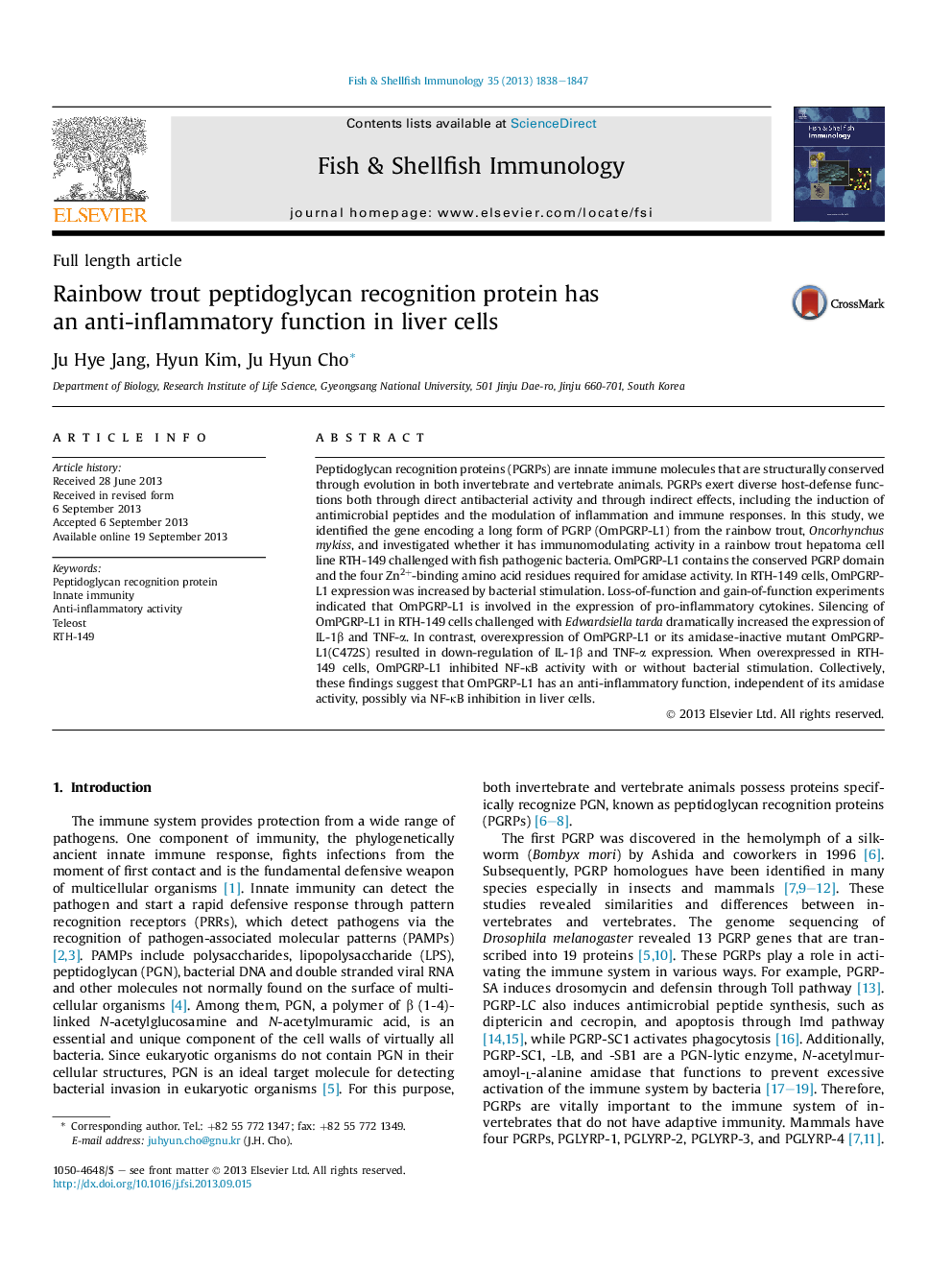| کد مقاله | کد نشریه | سال انتشار | مقاله انگلیسی | نسخه تمام متن |
|---|---|---|---|---|
| 2431539 | 1106763 | 2013 | 10 صفحه PDF | دانلود رایگان |

• We have identified a long PGRP in salmonids (rainbow trout, Oncorhynchus mykiss).
• OmPGRP-L1 expression is increased by bacterial stimulation in RTH-149 cells.
• OmPGRP-L1 down-regulates IL-1β and TNF-α expression, independently of its amidase activity.
• When overexpressed in RTH-149 cells, OmPGRP-L1 inhibits NF-κB activity.
• OmPGRP-L1 potentially modulates the immune response to bacterial infection in rainbow trout.
Peptidoglycan recognition proteins (PGRPs) are innate immune molecules that are structurally conserved through evolution in both invertebrate and vertebrate animals. PGRPs exert diverse host-defense functions both through direct antibacterial activity and through indirect effects, including the induction of antimicrobial peptides and the modulation of inflammation and immune responses. In this study, we identified the gene encoding a long form of PGRP (OmPGRP-L1) from the rainbow trout, Oncorhynchus mykiss, and investigated whether it has immunomodulating activity in a rainbow trout hepatoma cell line RTH-149 challenged with fish pathogenic bacteria. OmPGRP-L1 contains the conserved PGRP domain and the four Zn2+-binding amino acid residues required for amidase activity. In RTH-149 cells, OmPGRP-L1 expression was increased by bacterial stimulation. Loss-of-function and gain-of-function experiments indicated that OmPGRP-L1 is involved in the expression of pro-inflammatory cytokines. Silencing of OmPGRP-L1 in RTH-149 cells challenged with Edwardsiella tarda dramatically increased the expression of IL-1β and TNF-α. In contrast, overexpression of OmPGRP-L1 or its amidase-inactive mutant OmPGRP-L1(C472S) resulted in down-regulation of IL-1β and TNF-α expression. When overexpressed in RTH-149 cells, OmPGRP-L1 inhibited NF-κB activity with or without bacterial stimulation. Collectively, these findings suggest that OmPGRP-L1 has an anti-inflammatory function, independent of its amidase activity, possibly via NF-κB inhibition in liver cells.
Journal: Fish & Shellfish Immunology - Volume 35, Issue 6, December 2013, Pages 1838–1847